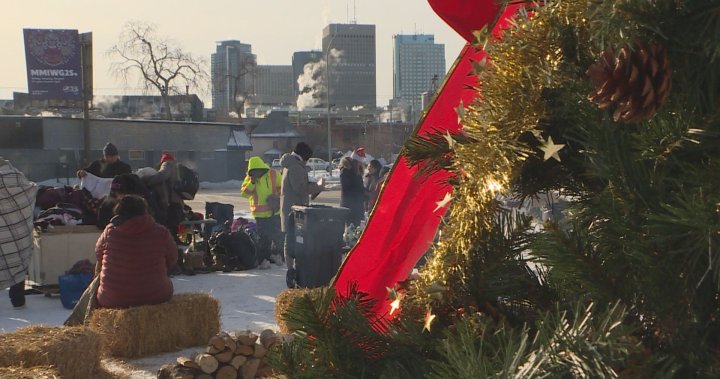The holiday season, a time often associated with warmth, family, and festive meals, casts a stark light on the realities of those experiencing homelessness. In Winnipeg, two organizations, Siloam Mission and N’Dinawemak – Our Relatives’ Place, opened their doors to provide a haven of comfort and support for the city’s vulnerable population. Siloam Mission’s Christmas lunch, a tradition offering a warm meal and a sense of community, expected to serve over 700 individuals. This gesture extended beyond the provision of food, offering a respite from the trauma and hardship inherent in homelessness, a chance to relax and be served, a moment of dignity in often difficult circumstances. Concurrently, N’Dinawemak hosted a holiday gathering and donation drive, aiming to meet the increasing demand for essential winter gear and providing a space for community connection and shared celebration. These initiatives underscore the critical need for ongoing support and understanding for individuals experiencing homelessness, particularly during the harsh winter months.
The sheer volume of individuals seeking shelter highlights the growing urgency of the situation. N’Dinawemak reported nearly 13,000 sign-ins in November alone, a number projected to surge even higher in December. Tragically, limited capacity forced them to turn away over 3,000 people, a stark reminder of the inadequacy of existing resources to meet the overwhelming need. The donation drive aimed to alleviate some of this pressure, providing essential items like winter jackets, mittens, and scarves, crucial for survival in Winnipeg’s frigid winter climate. Beyond the practical support, these initiatives serve as a powerful symbol of community solidarity, bringing together diverse groups to celebrate and acknowledge the shared humanity of those experiencing homelessness.
The leaders of both organizations emphasized the importance of understanding the root causes of homelessness and approaching the issue with compassion and empathy. Tessa Blaikie Whitecloud, CEO of Siloam Mission, highlighted the traumatic nature of homelessness, both as a consequence of pre-existing trauma and as a traumatic experience in itself. She stressed the need for societal support and understanding, advocating for a shift away from judgment and stigma towards creating pathways out of homelessness. Similarly, Frank Parkes, executive director of N’Dinawemak, underscored the interconnectedness of the community by referring to those experiencing homelessness as “relatives.” This terminology emphasizes the shared humanity and the reality that many individuals are just one unfortunate circumstance away from facing similar struggles.
The term “relatives,” as used by N’Dinawemak, serves a profound purpose. It reframes the narrative surrounding homelessness, moving away from impersonal labels and statistics and towards a recognition of shared humanity. Parkes explained that everyone knows someone who has struggled with homelessness, mental illness, or addiction, highlighting the close proximity of these issues to all members of the community. This framing encourages empathy and understanding, recognizing that anyone could find themselves in a similar situation. It breaks down the barriers of “us” and “them,” creating a sense of shared responsibility and fostering a more compassionate and supportive community response.
The holiday initiatives at both Siloam Mission and N’Dinawemak underscore a crucial message: the need for ongoing support and kindness extends far beyond the holiday season. While the spirit of giving is often heightened during this time of year, the challenges faced by those experiencing homelessness persist throughout the year. Blaikie Whitecloud emphasized the need for consistent societal support, urging a move away from judgment and stigma towards practical solutions that empower individuals to overcome homelessness. Parkes echoed this sentiment, highlighting the continuous need throughout all seasons and advocating for sustained awareness and action.
Both organizations exemplify the power of community-based initiatives in addressing the complex issue of homelessness. They provide not only immediate relief in the form of meals and essential supplies but also foster a sense of belonging and dignity for those often marginalized. Their message is clear: true support requires a sustained commitment to understanding, compassion, and action throughout the year. The holiday season serves as a poignant reminder of the shared humanity that binds us and the responsibility to support our “relatives” in need, not just during the holidays, but every day.

